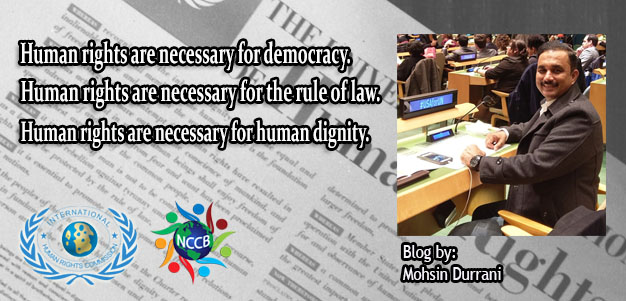In accordance with human rights treaties that have been signed and ratified by almost all countries, governments are required to mobilize the maximum of available resources for the fulfillment of human rights. Their economic policies are also subject to precise standards of participation, transparency, accountability and non-discrimination.
The basic economic infrastructure of human connectivity falls into this category: the means of physical travel, such as roads, bridges and ports of all kinds, and increasingly the means of virtual travel, such as broadband. All of this infrastructure can be, and typically initially is, provided by private entrepreneurs who see an opportunity to build a road, say, and charge users a toll, but the capital necessary is so great and the public benefit so obvious that ultimately the government takes over.
If government is to assume that in the main citizens can solve themselves more efficiently and effectively than government can provide for them, it will have to invest not only in the cultivation of citizen capabilities, but also in the provision of the resources and infrastructure to allow citizens to succeed at scale.
The most important priority of government as investor is indeed education, but education cradle-to-grave. The first five years are particularly essential, as the brain development in those years determines how well children will be able to learn and process what they learn for the rest of their lives. The government will thus have to invest in an entire infrastructure of child development from pregnancy through the beginning of formal schooling, including child nutrition and health, parenting classes, home visits and developmentally appropriate early education programs.
If government really wishes to invest in citizen talent, it will have to provide the same kind of “product” platforms where citizens can shop intelligently and efficiently for everything from health insurance to educational opportunities to business licenses and potential business partners. Those platforms cannot simply be massive data dumps; they must be curated, designed and continually updated for a successful customer/citizens experience.
Human rights are necessary for democracy. If the people do not have political rights, such as the right to vote and to form political parties, then democracy does not even exist because democracy is defined as that form of government in which the people have the right to govern themselves.
Human rights are necessary for the rule of law. In the fullest version of the rule of law, these enduring legal limits include respect for human rights, along with democracy and legal regularity. If the government is subject to no such limits, then it will quickly become despotic.
Human rights are necessary for human dignity. Dignity includes rights of autonomy, i.e. the right to be left alone in order to live one’s life according to one’s own goals and ideas. It also includes a claim on social resources, such as health care or education, so as to be able to live one’s life at a minimum level of well-being.
Human rights come in two different forms positive rights and negative rights. Negative rights are defined as those rights that prohibit the government from interfering in certain central aspects of the lives of individuals. Positive Rights gives a person the ability to demand a resource or opportunity from the government. The right to an education is a positive right, because it allows one to demand that the government provide one with a free or affordable education. The right to health care is a positive right. The right to a clean environment is a positive right included in many recent constitutions. Both positive and negative rights are important to human dignity and freedom.
